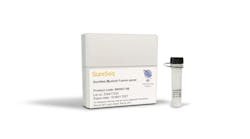In patients undergoing colonoscopy to screen for colorectal cancer, deeper sedation using the anesthetic drug propofol may improve detection of "serrated" polyps — a type of precancerous lesion that can be difficult to detect, reports a study in the Online First edition of Anesthesiology, the peer-reviewed journal of the American Society of Anesthesiologists (ASA).
The analysis included detailed information on more than 54,000 completed colonoscopies drawn from the New Hampshire Colonoscopy Registry. The procedures were performed between 2015 and 2020; all patients were older than 50 years. Rates of polyp detection, including serrated polyps and adenomas, were compared for patients receiving moderate sedation versus propofol-based anesthesia.
The overall polyp detection rate was higher when colonoscopy was performed using propofol: 34%, compared to 24.5% with moderate sedation. The results were similar on analysis of a "restricted" sample of about 19,000 colonoscopies performed at facilities that did not predominantly use one form of sedation over the other: overall polyp detection rate was 30.3% with propofol versus 25.7% with moderate sedation.
After adjustment for other confounding factors among these 19,000 colonoscopies, propofol was still associated with a clinically and statistically significant 13% higher likelihood of serrated polyp detection, although other types of polyps did not demonstrate a difference in detection.
The conclusions are strengthened by the use of systematically collected clinical registry data, the researchers note. However, the study cannot provide any information on how propofol might improve detection of serrated polyps.





